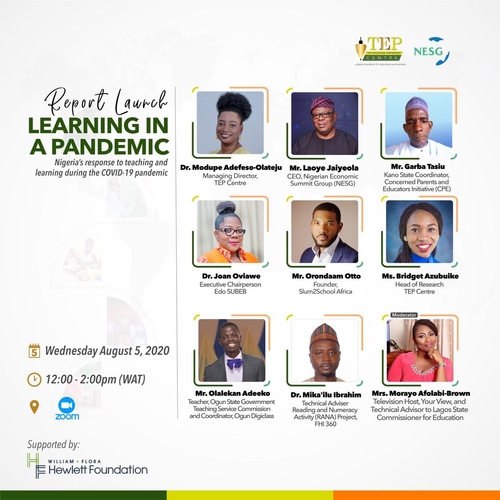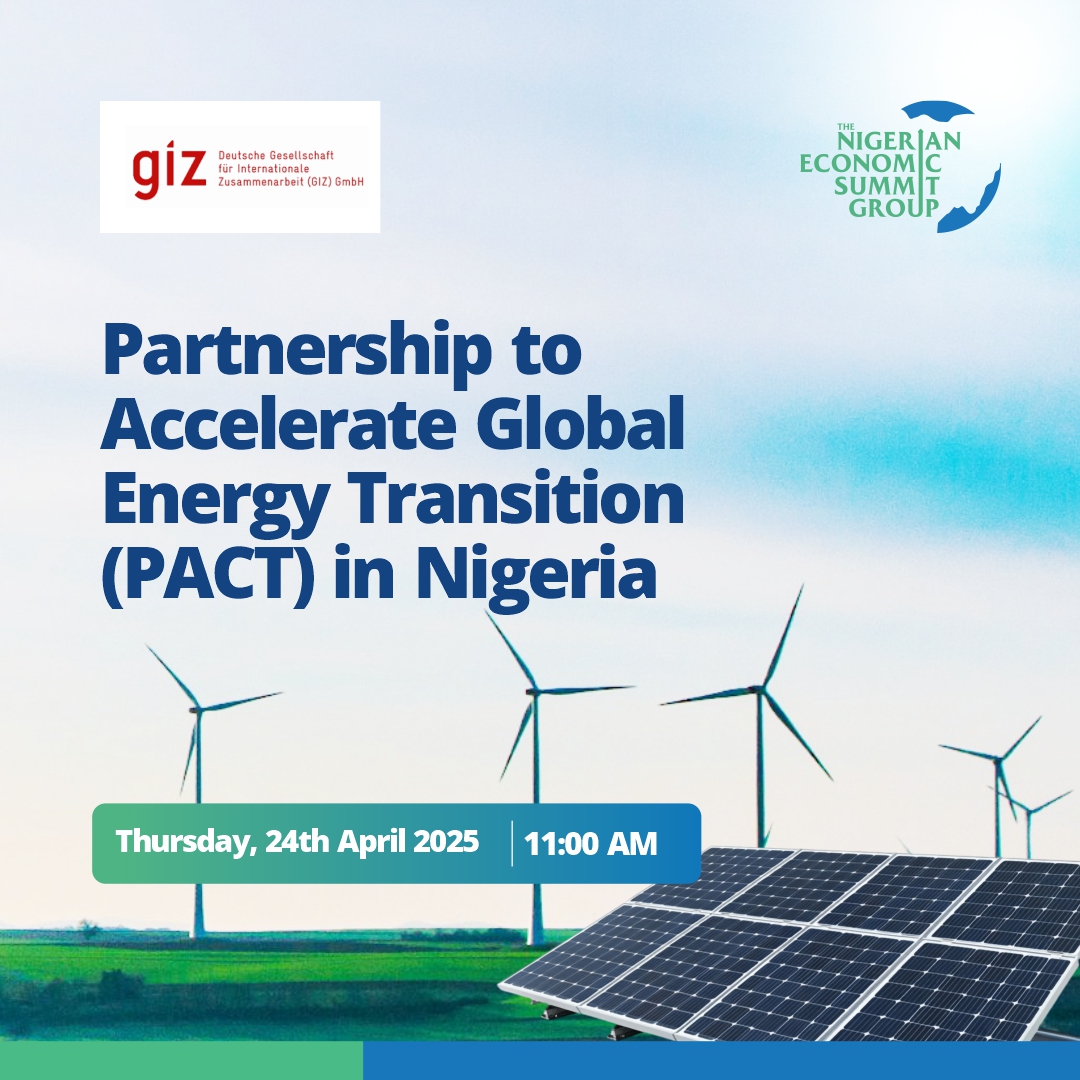Posted Thu, Aug 6, 2020 4:51 AM
NESG releases report on Nigeria’s Education Innovation response to the COVID-19 Pandemic

The release of the Nigerian Economic Summit Group (NESG) and The Education Partnership (TEP) Centre Education Innovation Survey report titled “Learning in a pandemic: Nigeria’s response to teaching and learning during the COVID-19 pandemic” and the virtual launch of the TEP Centre took place on Wednesday, 5th of August, 2020.
The managing director of the TEP Centre, Mrs. Modupe Adefeso-Olapeju welcomed participants to the virtual session and said that the release of the Education Innovation Survey reports was a culmination of several months of learning and interactions. She stated that the work of the TEP covers learning, monitoring and evaluation, research and public-private dialogue all in a bid to improve Nigeria’s education sector.
While delivering the opening remarks, the chief executive officer of the NESG, Mr. ‘Laoye Jaiyeola said that the COVID-19 pandemic has had a severe impact on various sectors including the health, economy, humanitarian and security. He revealed that the NESG continues to engage in advocacy and public-private dialogue to develop all critical sectors of the Nigerian economy.
While delivering a presentation on the survey report, the Head of research of the TEP Centre, Ms. Bridget Azubuike revealed that the COVID-19 pandemic affected 73.4 percent of schools worldwide and about 1.2 billion learners were out of school as a result of the effects of the pandemic. She stated that access to digital tools and internet connectivity were some of the major challenges faced by students and parents during the COVID-19 pandemic and there is a need for more investments in infrastructure for virtual learning. She revealed that recommendations from the survey for improved learning include “evidence-based learning, keeping children safe online, training and supporting parents and activating remote learning in tertiary institutions.”
During the panel session that was moderated by Mrs. Morayo Afolabi-Brown, Television host, ‘Your View’ and technical adviser to Lagos state commissioner for education, the permanent secretary, Lagos ministry of Education, Mrs. Modupe Adelaja stated that Lagos state has implemented “blended learning” which combines online learning, television and radio learning and that the content is moderated by the Lagos state universal basic education board (SUBEB).
While answering questions from participants, the founder of Slum2School Africa, Mr. Oroodam Otto said that there is a need for Nigeria’s education sector to be structured in a way that it ensures that there is equity and equality for all students irrespective of social structure.
The NESG Human Capital Development Policy Commission (HCDPC) focuses on finding more efficient ways to accelerate more and better investments in people in terms of health, education, social protection and women empowerment for greater equity and economic growth.
The ultimate aim and objective of the Human Capital Development Policy Commission is to increase the level and contribution of Nigeria’s labour force in line with various Nigerian Economic Summit recommendations with a view to fast-tracking growth and development of the economy.
Find a blog post
Latest Releases

Strategic Implications of US Rec .. Read
3 days ago

Strategic Implications of US Rec .. Read
5 days ago

Engagement Towards a Successful .. Read
2 days from now
